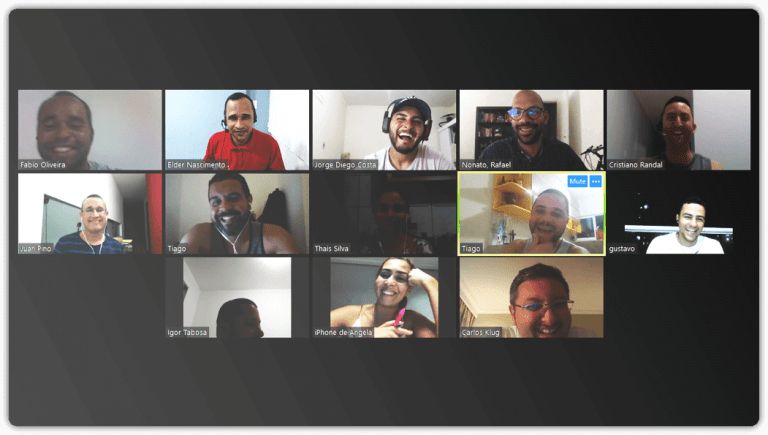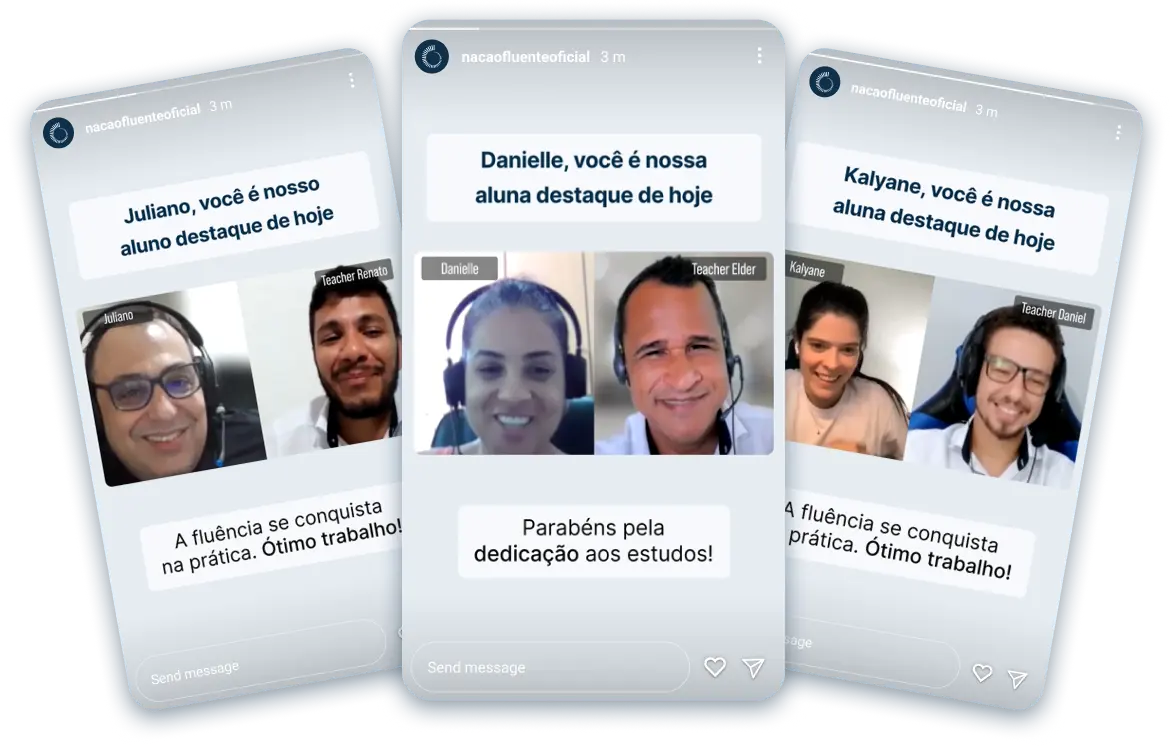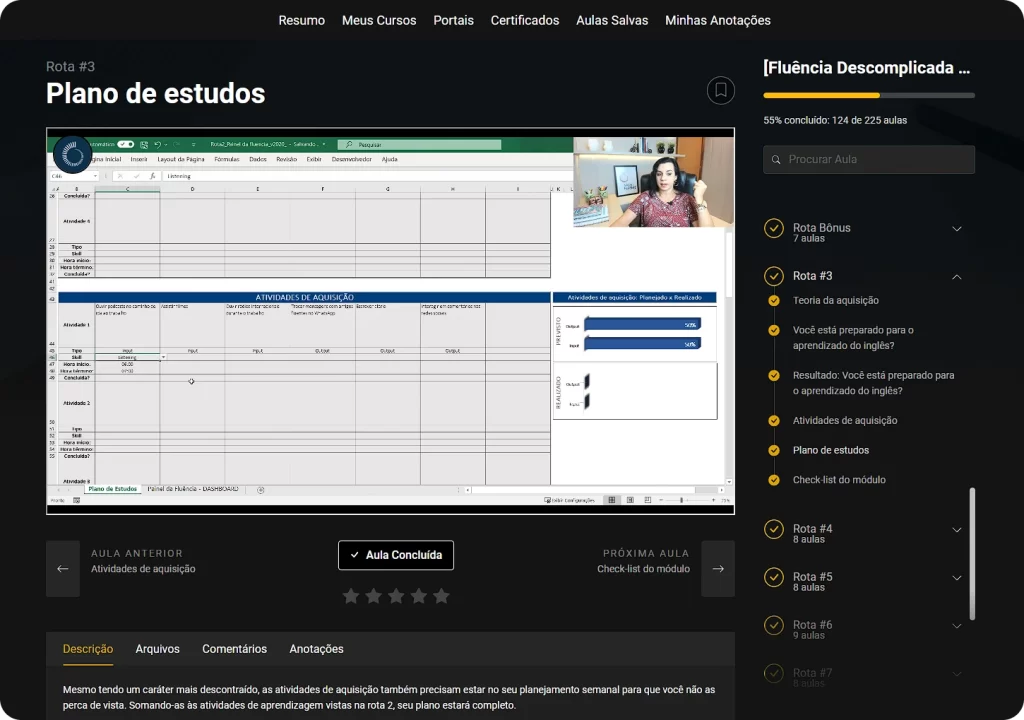Se você tem vontade de enfiar a cabeça num buraco quando erra ao falar inglês, ou pior, evita falar para não arriscar errar, lembre-se que os falantes nativos de inglês não são perfeitos e erram também.
Assim como em português, há diversos erros comuns em inglês. Enquanto alguns são mais comuns entre nativos, outros são mais cometidos por estudantes.
Alguns são erros simples, que não atrapalham a comunicação, outros, porém, não passam despercebidos e podem fazer a diferença se você precisa de um inglês profissional.
Como Kyle Wiens, CEO da iFixit, uma empresa de manuais de reparo online, escreveu em um artigo da Harvard Business Review:
[…] if job hopefuls can’t distinguish between ‘to’ and ‘too,’ their applications go into the bin.
(se os candidatos não conseguem distinguir entre ‘to’ e ‘too’, suas candidaturas vão para o lixo.)
Então, para que você aprenda inglês da maneira mais correta possível, compilei diversos erros comuns em inglês – talvez você esteja errando sem saber.
Erros comuns em inglês cometidos até por falantes nativos
Tenho certeza que você já se deparou com frases em inglês que contrariavam o que você aprendeu em aula. Isso é bem comum, principalmente em filmes, séries, programas de TV e músicas populares.
Tratando de música, veja esse exemplo de What Goes Around Comes Around, do Justin Timberlake:
Letra original: “When you cheated girl, my heart bleeded girl.“
Letra corrigida: “When you cheated, girl, my heart bled, girl.“
Não tem como ver isso e não questionar se você aprendeu o verbo to bleed (sangrar) corretamente.
O problema é que o estudante de inglês pode não saber distinguir o que é certo, e acabar optando por reproduzir o erro, acreditando que é o jeito correto de falar.
Note que, em alguns casos, os erros não passam de confusões entre palavras; confusões comuns até para quem está aprendendo inglês como língua estrangeira, por isso, fique atento a esses erros:
1. Everyday/Every day
Ele começa a trabalhar todos os dias às 8h.
Errado: He starts work everyday at 8 a.m.
Correto: He starts work every day at 8 a.m.
2. I/Me
O gerente de marketing disse ao Daniel e a mim para conversarmos com ela.
Errado: The marketing manager told Daniel and I to talk with her.
Correto: The marketing manager told Daniel and me to talk with her.
3. Its/It’s
A empresa acabou de comemorar seu oitavo ano desde que abriu o capital.
Errado: The company just celebrated it’s eighth year since it went public.
Correto: The company just celebrated its eighth year since it went public.
4. Less/Fewer
Menos de 50 pessoas compareceram à apresentação.
Errado: Less than 50 people showed up for the presentation.
Correto: Fewer than 50 people showed up for the presentation.
5. Lie/Lay
Eu poderia simplesmente deitar e dormir.
Errado: I could just lay down and go to sleep.
Correto: I could just lie down and go to sleep.
6. Lose/Loose
Se continuarmos nesse caminho, não podemos perder.
Errado: If we stay on this track, we can’t loose.
Correto: If we stay on this track, we can’t lose.
7. That/Who
As pessoas que atingirem a meta de vendas receberão uma recompensa.
Errado: The people that reach their sales target will get a reward.
Correto: The people who reach their sales target will get a reward.
8. Then/Than
Essa apresentação foi melhor que a primeira.
Errado: That presentation was better then the first one.
Correto: That presentation was better than the first one.
9. there/their/they’re
Eles vão para o escritório deles lá.
Errado: There going to they’re office over their.
Correto: They’re going to their office over there.
10. Your/You’re
Errado: Your my favorite supervisor.
Correto: You’re my favorite supervisor.
Erros mais comuns de brasileiros ao falar inglês
Esses erros comuns em inglês estão mais para “vícios”, e são a marca registrada do brasileiro ao falar nesse idioma, portanto, conhecer e se livrar deles é fundamental para uma comunicação mais clara:
- Esquecer o “it”: It’s raining, não Is raining
- Confundir o uso dos verbos “come” e “go”: “I’m coming to help you!“ e “I’m going to help him!“
- Dar som de “tchi” ao “t”: too soa como “tu”, não “tchu”
- Confundir o uso de “make”, “do” e “have”
- Não pronunciar o “th” corretamente
- Inserir um “i” em palavras que acabam com consoantes: hot dog não soa como hoti dogi
- Forçar a pronúncia da vogal final em verbos terminados em -ed
- Confundir a pronúncia do “r” e do “h” inicial: Red Hot Chilli Peppers quem o diga
- Cair na armadilha dos falsos cognatos: actually não é atualmente
Lista de frases erradas em inglês
Abaixo está uma lista de frases gramaticalmente incorretas faladas por estudantes de inglês:
| Frase errada | Frase correta |
|---|---|
| I have visited Niagara Falls last weekend. | I visited Niagara Falls last weekend. |
| The woman which works here is from Japan. | The woman who works here is from Japan. |
| She’s married with a dentist. | She’s married to a dentist. |
| She was boring in the class. | She was bored in the class. |
| I must to call him immediately. | I must call him immediately. |
| Every students like the teacher. | Every student likes the teacher. |
| Although it was raining, but we had the picnic. | Although it was raining, we had the picnic. |
| I enjoyed from the movie. | I enjoyed the movie. |
| I look forward to meet you. | I look forward to meeting you. |
| I like very much ice cream. | I like ice cream very much. |
| She can to drive. | She can drive. |
| Where I can find a bank? | Where can I find a bank? |
| I live in United States. | I live in the United States. |
| When I will arrive, I will call you. | When I arrive, I will call you. |
| 1. I’ve been here since three months. | I’ve been here for three months. |
| My boyfriend has got a new work. | My boyfriend has got a new job. |
| She doesn’t listen me. | She doesn’t listen to me. |
| You speak English good. | You speak English well. |
| The police is coming. | The police are coming. |
| The house isn’t enough big. | The house isn’t big enough. |
| You should not to smoke. | You should not smoke. |
| Do you like a glass of wine? | Would you like a glass of wine? |
| There is seven girls in the class. | There are seven girls in the class. |
| I didn’t meet nobody. | I didn’t meet anybody. |
| My flight departs in 5:00 am. | My flight departs at 5:00 am. |
| I promise I call you next week. | I promise I’ll call you next week. |
| Where is post office? | Where is the post office? |
| Please explain me how improve my English. | Please explain to me how to improve my English. |
| We studied during four hours. | We studied for four hours. |
| Is ready my passport? | Is my passport ready? |
| You cannot buy all what you like! | You cannot buy all that you like! |
| She is success. | She is successful. |
| My mother wanted that I be doctor. | My mother wanted me to be a doctor. |
| The life is hard! | Life is hard. |
| How many childrens you have? | How many children do you have? |
| My brother has 10 years. | My brother is 10 (years old). |
| I want eat now. | I want to eat now. |
| You are very nice, as your mother. | You are very nice, like your mother. |
| She said me that she liked you. | She told me that she liked you. |
| My husband engineer. | My husband is an engineer. |
| I came Australia to study English. | I came to Australia to study English. |
| It is more hot now. | It’s hotter now. |
| You can give me an information? | Can you give me some information? |
| They cooked the dinner themself. | They cooked the dinner themselves. |
| Me and Johnny live here. | Johnny and I live here. |
| I closed very quietly the door. | I closed the door very quietly. |
| You like dance with me? | Would you like to dance with me? |
| I go always to school by subway. | I always go to school by subway. |
| If I will be in London, I will contact to you. | If I am in London, I will contact you. |
| We drive usually to home. | We usually drive home. |
Como evitar erros em inglês?
Ter consciência dos erros comuns em inglês ajuda a evitar que você os cometa. Para que isso seja efetivo, no entanto, você precisa treinar o idioma diariamente.
Você vai notar que, mesmo conhecendo determinados erros, você seguirá errando, porém, se você estiver ciente que errou, esses deslizes serão cada vez menos frequentes.
Lembre-se de seguir essas dicas para evitar os erros comuns em inglês:
- Pratique em fóruns de inglês, como nesta comunidade no Discord;
- Escreva textos em inglês uma vez por dia, e utilize o Grammarly para revisar;
- Aprenda inglês com falantes nativos no YouTube;
- Aprenda e revise as regras gramaticais;
- Leia livros e notícias em inglês regularmente, mesmo que necessite da ajuda de um dicionário;
- Pratique conversação com frequência.
Teste sua compreensão desta lição
Agora faça esse teste rápido e revise o que você aprendeu neste artigo:




